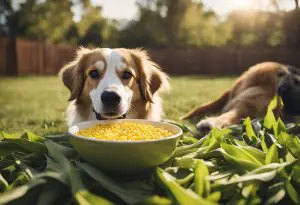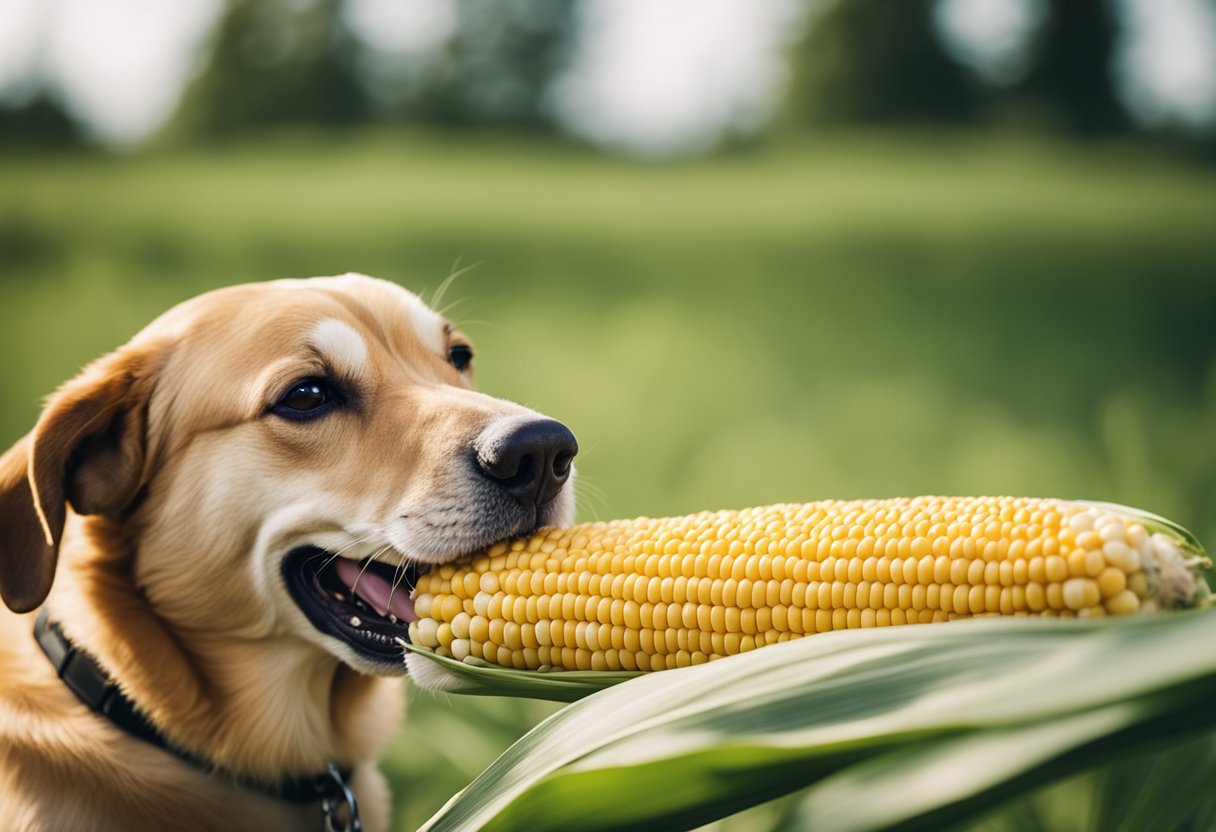Can Dogs Eat Corn? Understanding the Safety and Benefits
Corn is a common food that many people enjoy, but you might wonder if it’s safe for your dog. Corn can be a healthy part of your dog’s diet in moderation, as long as it is served correctly. Knowing how to feed corn to your dog can help you provide a tasty treat while keeping their health in check.
It’s important to understand the benefits and risks associated with feeding corn to dogs. While cooked corn kernels can offer some nutritional value, you need to avoid feeding them corn on the cob or other parts that could pose choking hazards. By following proper feeding guidelines, you can make sure your furry friend enjoys corn safely.
As you read through this article, you’ll learn more about the nutritional aspects of corn, the best ways to prepare it, and what precautions to take. You’ll feel more confident in making food choices for your dog, ensuring they remain happy and healthy.
Key Takeaways
- Corn can be a nutritious addition to your dog’s diet when offered safely.
- Avoid feeding corn on the cob, as it can be dangerous for dogs.
- Always consult guidelines to ensure proper feeding practices for your pet.
Nutritional Perspective on Corn for Dogs

Corn can be a beneficial addition to your dog’s diet, offering various nutrients. However, it also comes with potential risks that should be considered before adding it to their meals.
Benefits of Corn in a Dog’s Diet
Corn is a good source of carbohydrates, providing your dog with energy. Many dog foods include corn as a primary ingredient due to its energy-boosting properties.
Additionally, corn contains dietary fiber. This helps promote healthy digestion and can assist with mild gastrointestinal issues. The fiber in corn can also help maintain regular bowel movements.
Moreover, corn contains essential nutrients like protein, vitamins, and minerals. It is particularly rich in antioxidants, which support your dog’s immune system. Overall, when fed in moderation, corn can be a nutritious component of your dog’s diet.
Potential Risks and Considerations
While corn has benefits, there are some risks to consider. Not all dogs digest corn well. Some may experience allergies or gastrointestinal upset after consuming it.
It’s important to serve corn in moderation. Too much corn can lead to obesity due to its caloric content. You should also avoid feeding your dog corn on the cob, as it poses a choking hazard and can lead to intestinal blockage.
Additionally, pay attention to the quality of corn in dog food. Corn that is heavily processed or contains additives may not offer the same benefits. Always consult your veterinarian if you have concerns about adding new foods to your dog’s diet.
Feeding Guidelines and Recommendations

Understanding how to properly feed corn to your dog is important. You should be aware of the right serving sizes and preparation methods to keep your dog safe and healthy.
Appropriate Serving Sizes
When feeding corn to your dog, moderation is key. A small dog can handle about 1-2 tablespoons of corn, while a larger dog may eat up to a half cup.
It’s important not to overdo it. Too much corn can lead to digestive issues.
Consider corn as a treat, not a meal replacement. Feed it occasionally, and ensure it is part of a balanced diet with other nutrients. Always consult with your vet if you have concerns about your dog’s diet.
Preparation and Safety Tips
Cook corn before serving it to your dog. Raw corn can be hard for dogs to digest. You can boil, steam, or microwave the corn.
Avoid adding butter, salt, or other seasonings, as these can be harmful.
Keep an eye out for any reactions when introducing corn for the first time. If your dog shows signs of allergies or stomach upset, stop feeding it immediately.
Also, ensure that you remove any corn cobs, as they can pose a choking hazard. It’s best to serve just the kernels.
Resources

If you’re considering adding corn to your dog’s diet, here are some helpful resources.
- American Kennel Club: Learn about the safety of corn for dogs and moderation guidelines. Visit Can Dogs Eat Corn? – American Kennel Club.
- Pawlicy: This site provides detailed information on how corn can be included in your dog’s meals safely. Check out Can Dogs Eat Corn? Here’s Everything You Need to Know.
- Dogster: Get insights into the nutritional benefits of corn and its role in dog food. Read more at Can Dogs Eat Corn? Vet-Reviewed Facts & Nutritional Benefits.
- Rover.com: Find expert advice on preparing corn for your dog and the potential benefits. Visit Can Dogs Eat Corn? Benefits, Risks, and Preparation Tips – Rover.com.
- Petco: Discover how corn can meet key nutritional needs for dogs when given properly. Learn more at Can Dogs Eat Corn? Is Corn Good for Dogs? | Petco.
These resources will guide you in making informed choices for your dog’s diet.
Frequently Asked Questions

You may have questions about including corn in your dog’s diet. Here are answers to some common concerns regarding corn and its different forms.
Is corn on the cob safe for dog consumption?
Corn on the cob is not safe for dogs. The cob can pose a choking hazard and may cause digestive blockages. It’s best to avoid giving dogs corn on the cob entirely.
Can cooked corn be included in a dog’s diet?
Yes, cooked corn can be included in your dog’s diet. Ensure it’s plain, with no added butter, salt, or seasoning. Moderation is key to prevent any digestive issues.
Is it safe for dogs to eat corn chips?
It’s not recommended for dogs to eat corn chips. They often contain high levels of salt and seasoning, which can be unhealthy for dogs. Stick to plain corn if you choose to share it.
Are corn flakes a suitable snack for dogs?
Corn flakes can be given to dogs in small amounts. Choose plain, unsweetened varieties without added sugars or flavors. Too many can lead to an upset stomach.
How does corn affect a dog’s digestive system?
Corn is generally digestible for dogs, but some may have sensitivities. Monitor your dog for any signs of allergies or digestive upset. If issues arise, consult your veterinarian.
Is it safe for dogs to eat frozen corn?
Yes, frozen corn is safe for dogs to eat. Make sure to cook it first to soften it. Avoid added seasoning to keep it healthy and safe for your pet.

